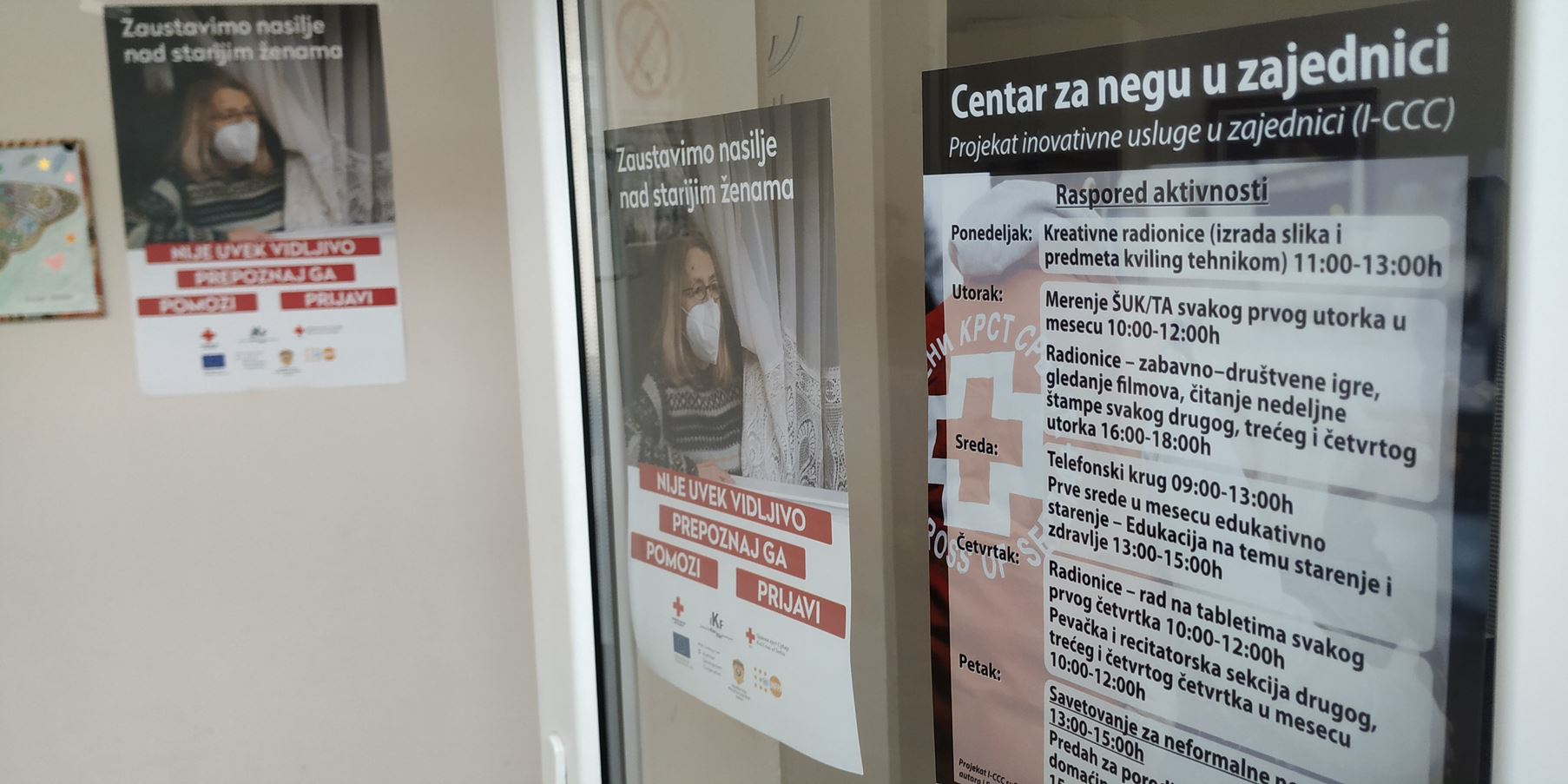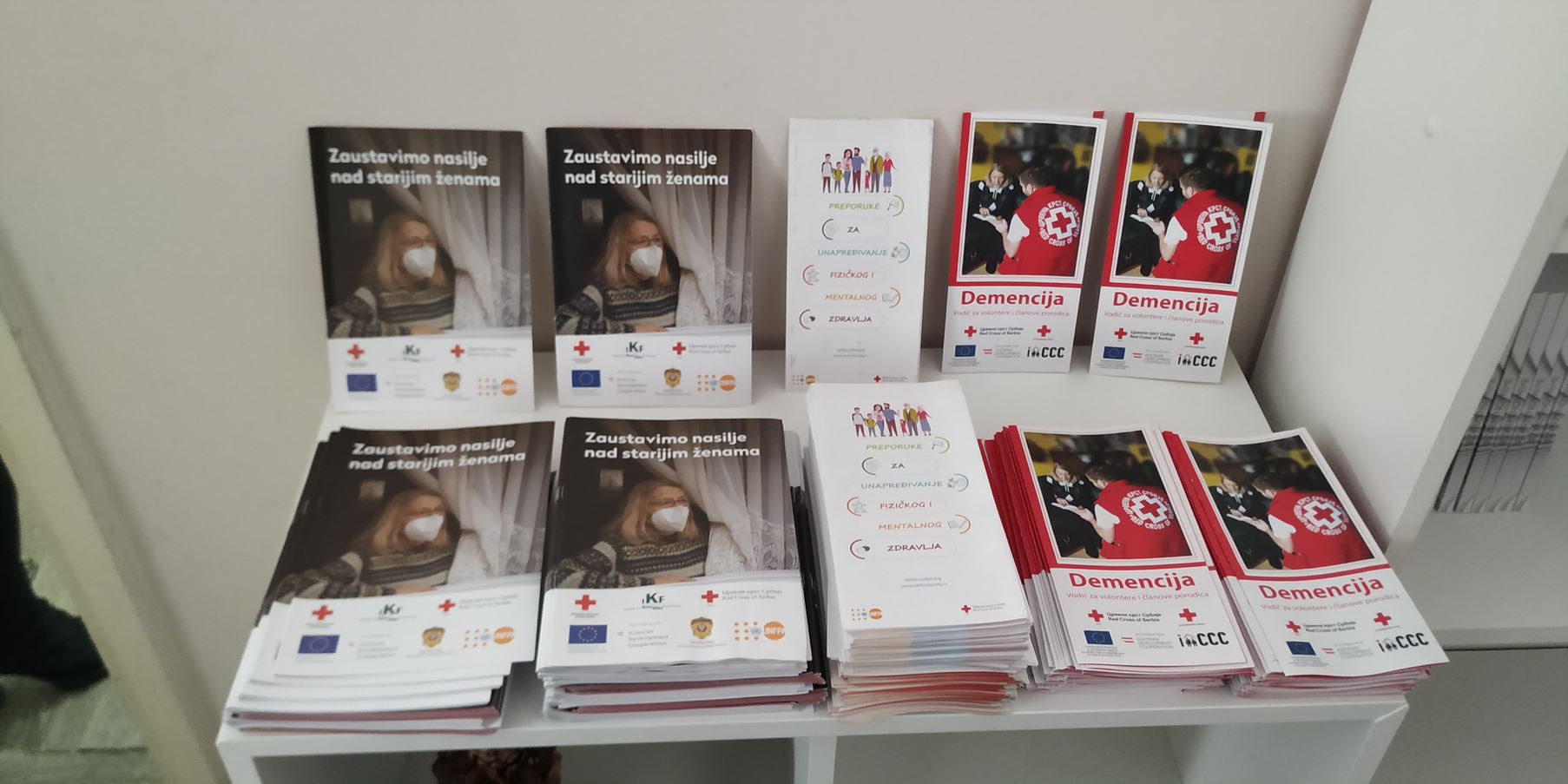Official opening of the Community Care Centre in Pirot
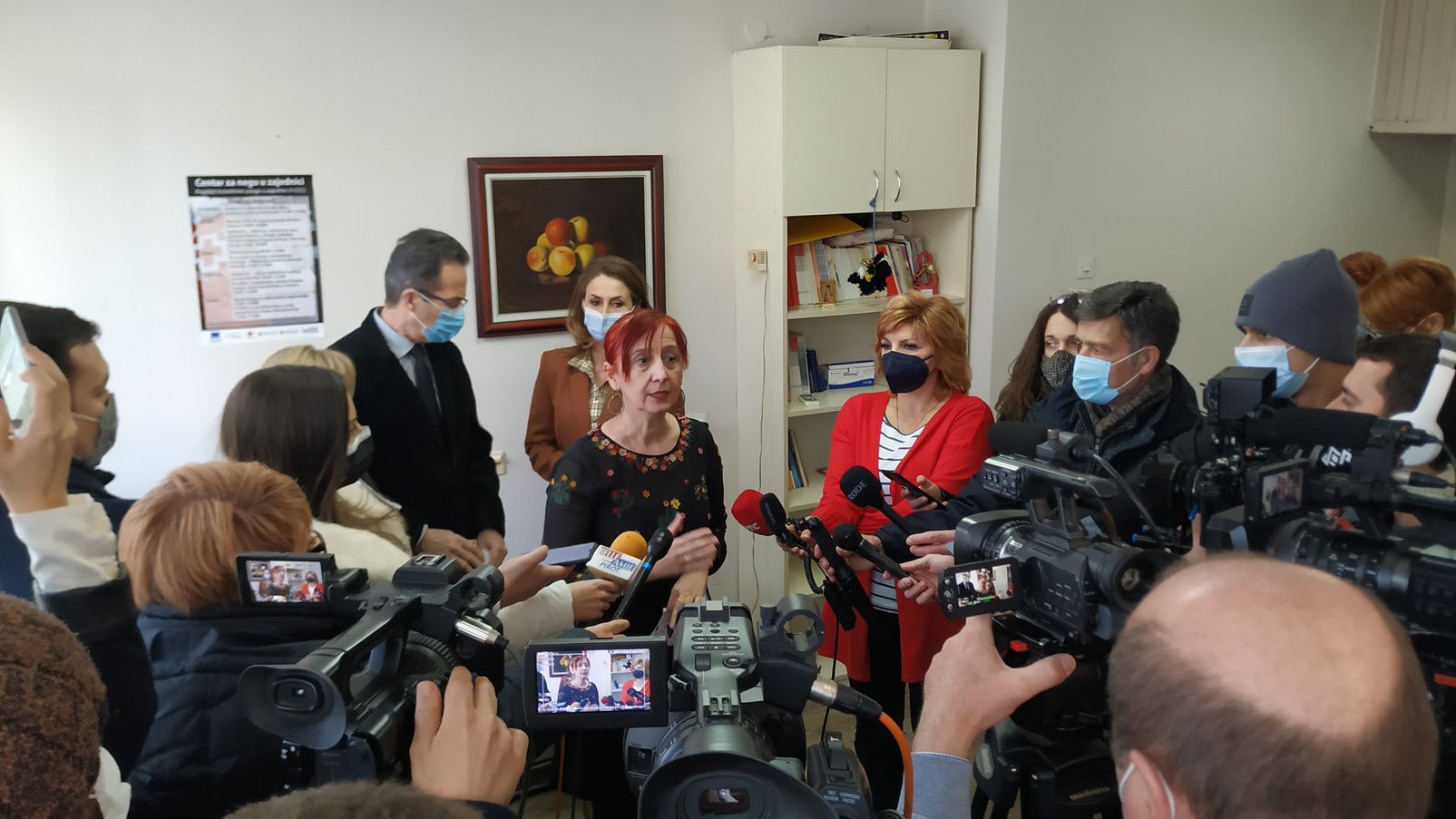
The official opening of the Community Care Centre was organized on February 2, 2022 in Pirot within the project “Addressing and preventing care needs through innovative community care centres (I-CCC)”.
The opening of the Centre is part of the project that the Red Cross of Serbia has been implementing since November 2020 in partnership with the Austrian Red Cross and with the support of the European Union and the Austrian Development Agency.
At the opening ceremony, the space where older persons will receive services was presented, as well as the activities that will be available to them during their stay at the Centre. The goal of the Centre is to improve the position of older persons in the community, as well as that of informal caregivers (mostly family members) who will be able to organize their time in a better way. Special emphasis in all activities planned in this project is on older persons who suffer from dementia, and on informal caregivers who care for them.
Activities to be provided by the Centre include: education of older persons, crocheting workshops, painting and handicrafts for older persons, a library and a computer room where older persons will be able to learn and develop personal information skills. An important part of the project is to support informal caregivers through education, self-help groups and respite services.
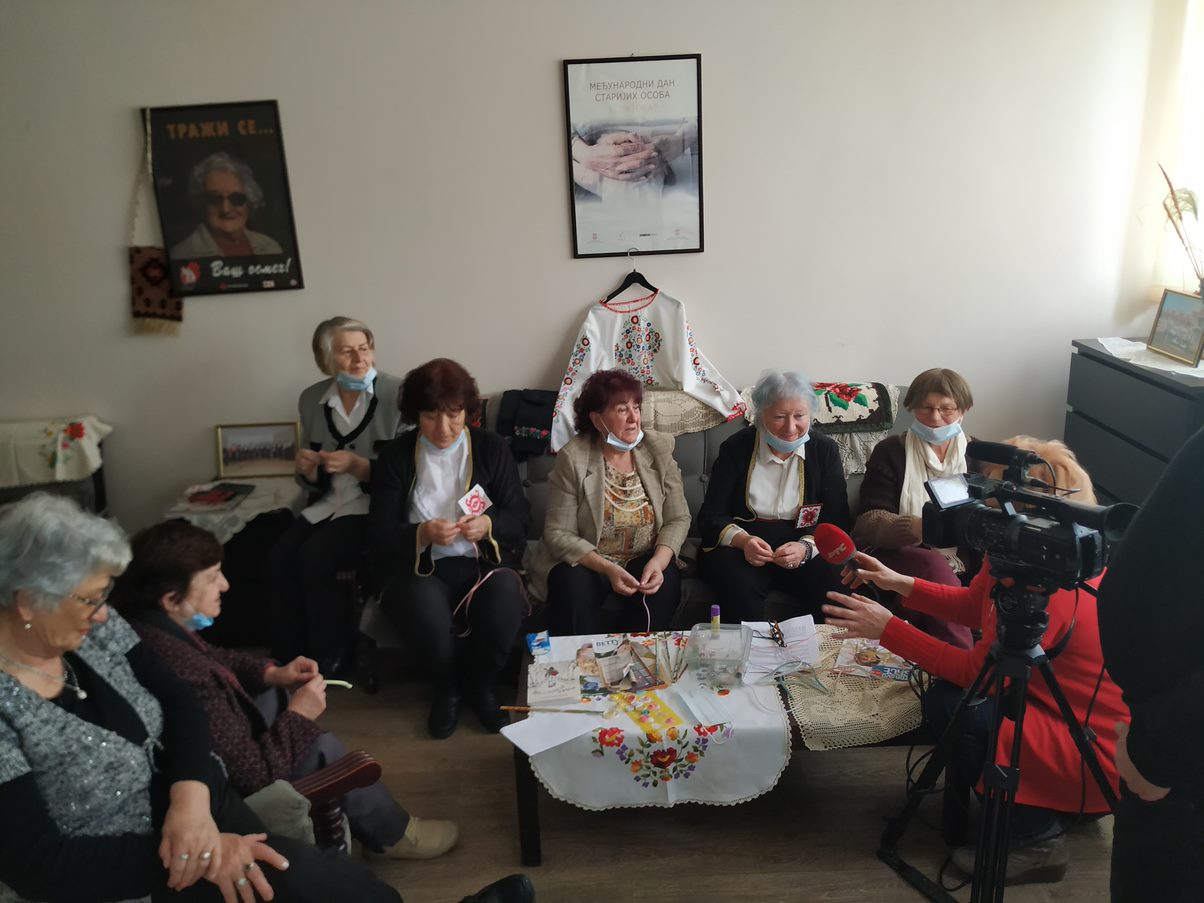
Speakers at the opening ceremony were: Sreten Selaković, State Secretary at the Ministry of Labour, Employment, Veteran and Social Affairs; Brankica Janković, Commissioner for the Protection of Equality; Marija Vasić, director of the Centre for Social Welfare of the city of Pirot and Natasa Todorović, expert of the Red Cross of Serbia.
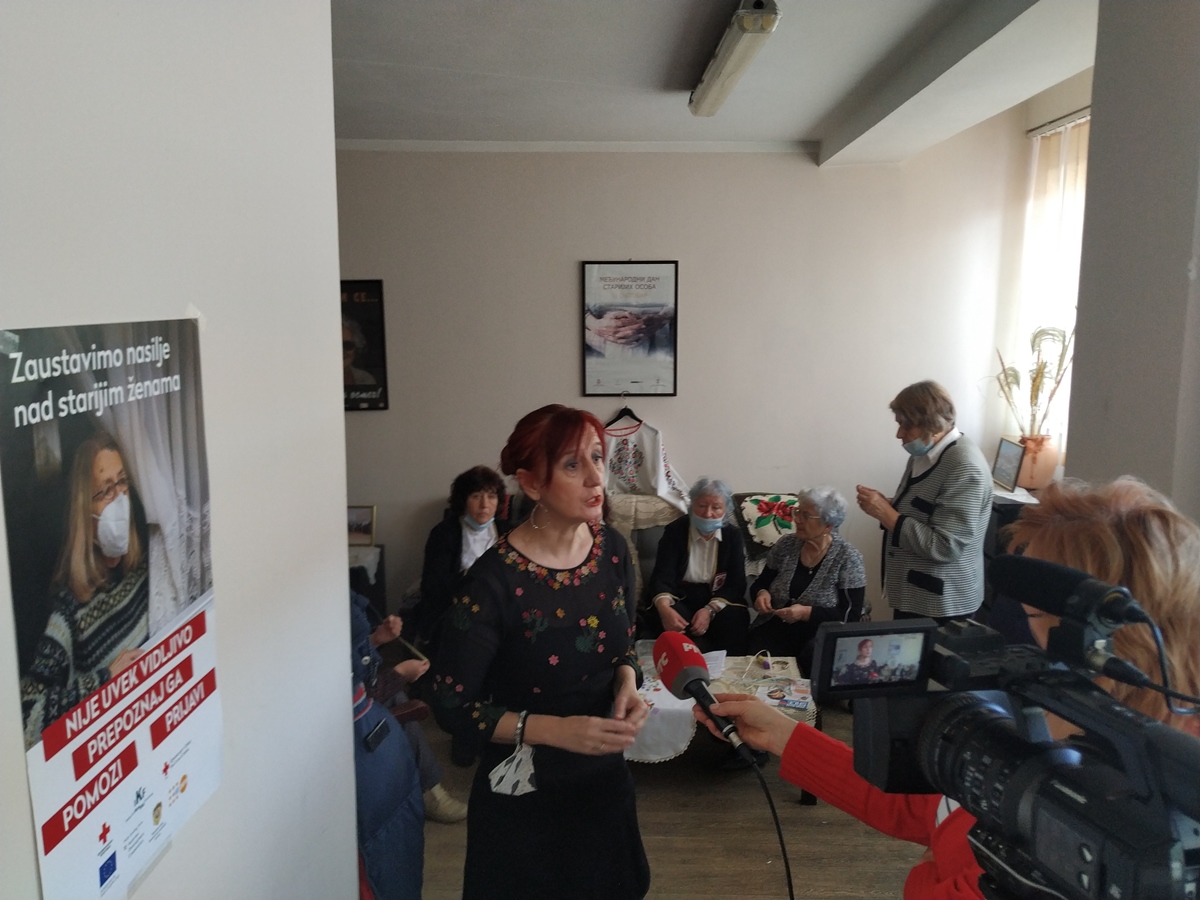
The main goal of the Community Support Centres is to provide integrated services that will help preserve the functional capacities of older persons and promote healthy aging. The additional goal is to provide support to informal caregivers while at the same time creating links between health care and social welfare services. In addition to the Centre, the project brings new technologies and new approaches to people diagnosed with dementia, but also supports their family members. People with dementia are excluded from society, and the families of people with dementia are under great pressure. In the following period, cognitive exercises will be done with older persons with dementia, and the course of the onset of this condition will be monitored over time, concluded Natasa Todorović.
Brankica Janković pointed out that 90 percent of relevant services are provided by informal caregivers, and that these caregivers are mostly women aged 60 and over. Ms. Janković stated that of late there has been a positive trend in which there is an increase in the number of men who are ready to provide help to people who need it. The biggest problems at the moment are the lack of systemic support, day care centres and special departments within health institutions, so this type of support, such as the Community Care Centre, is very important and provides an adequate response to the needs of local communities.
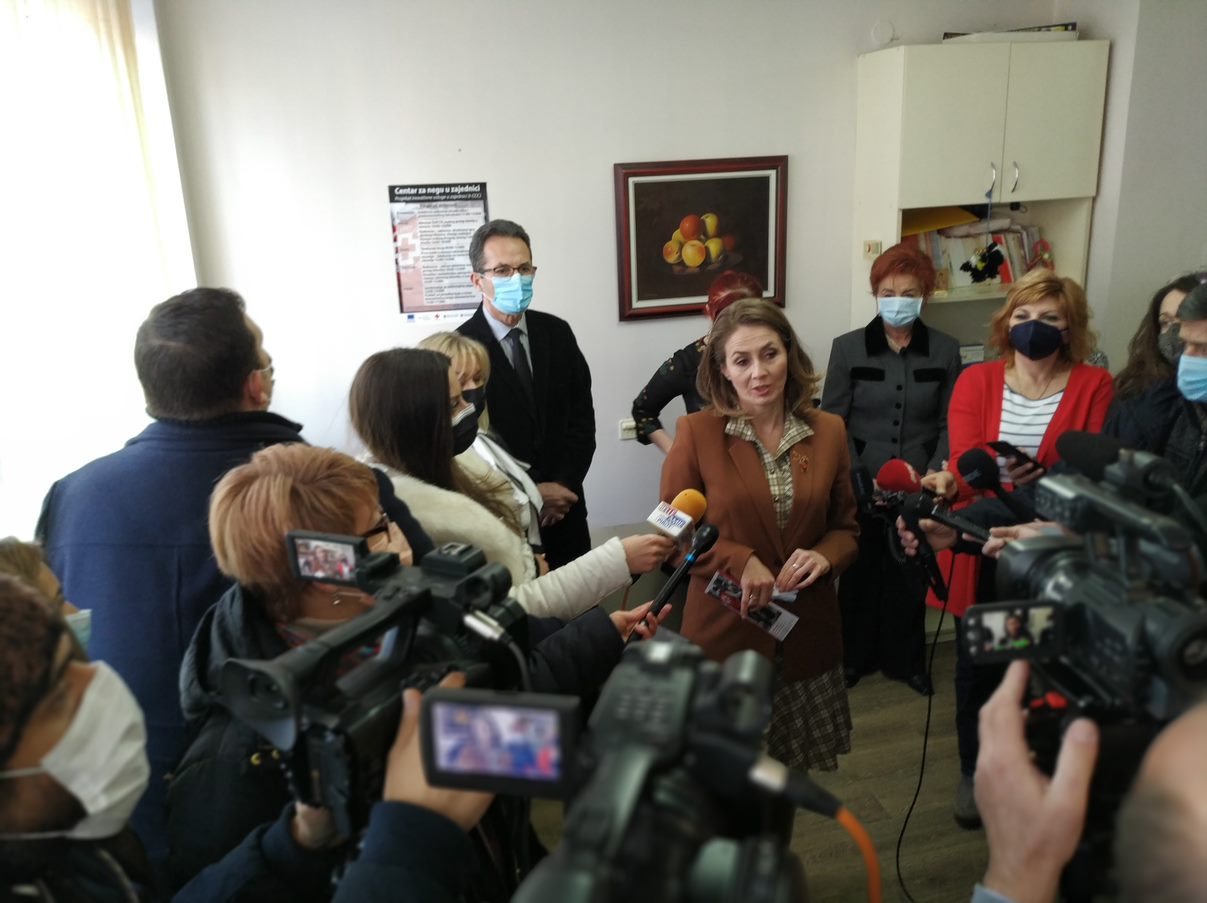
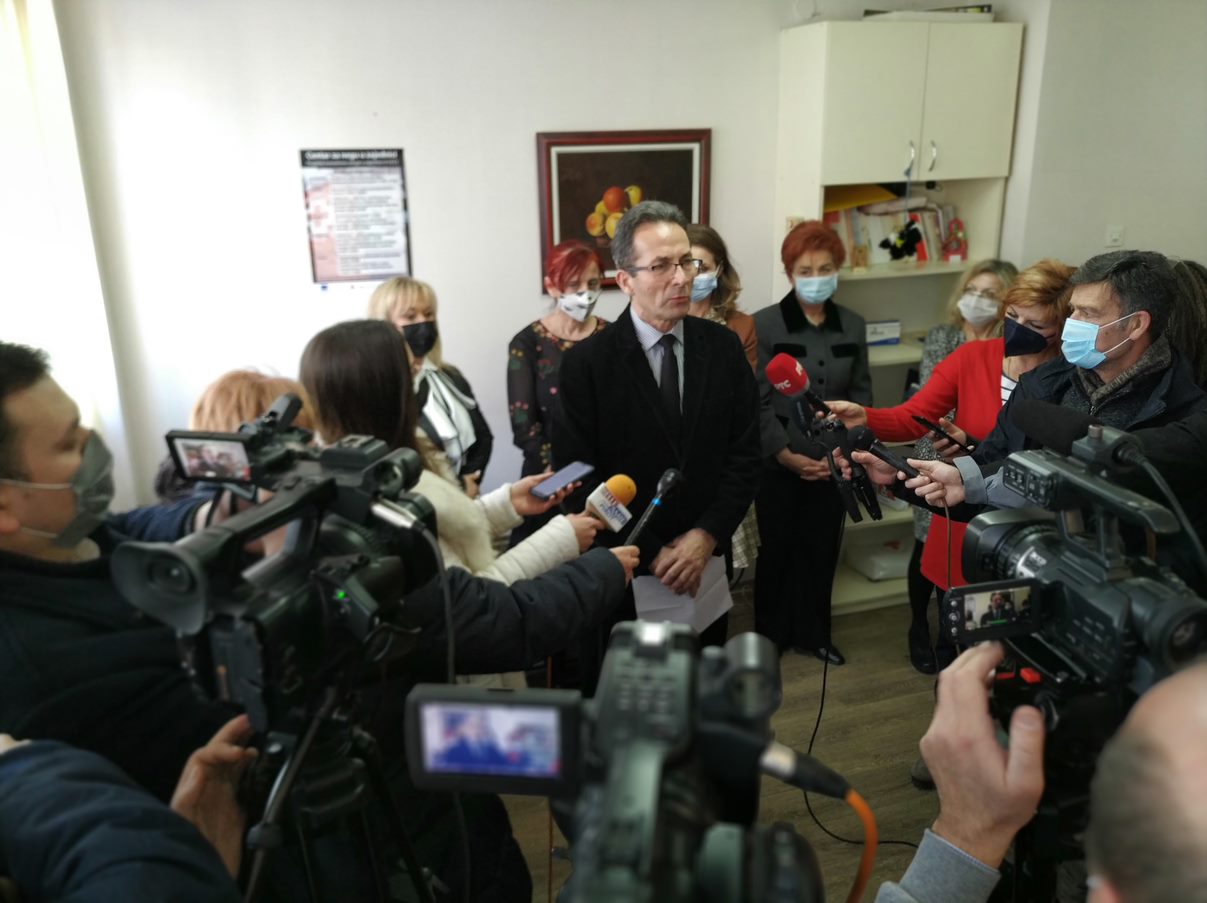
Sreten Selaković pointed out that the newly opened Centre will be of great importance for the local community because it will contribute to reducing the burden on the system that provides long-term care services in the future. Also, the activities provided by the Centre are very important because they provide services aimed at older persons who need constant care and support, with special emphasis on persons suffering from dementia. The project includes visits of volunteers, gerontocarers to older persons, but also counselling provided by the experts in the Centre, both directly to older persons and their families, because family members and those informal caregivers providing care to older persons with dementia.
Marija Vasić stated that an organized action involving ministries and local institutions can contribute to older citizens living better, while the Centre for Social Welfare itself has the conditions to continue the work in which attention is paid to improving the quality of life for older citizens in Pirot.
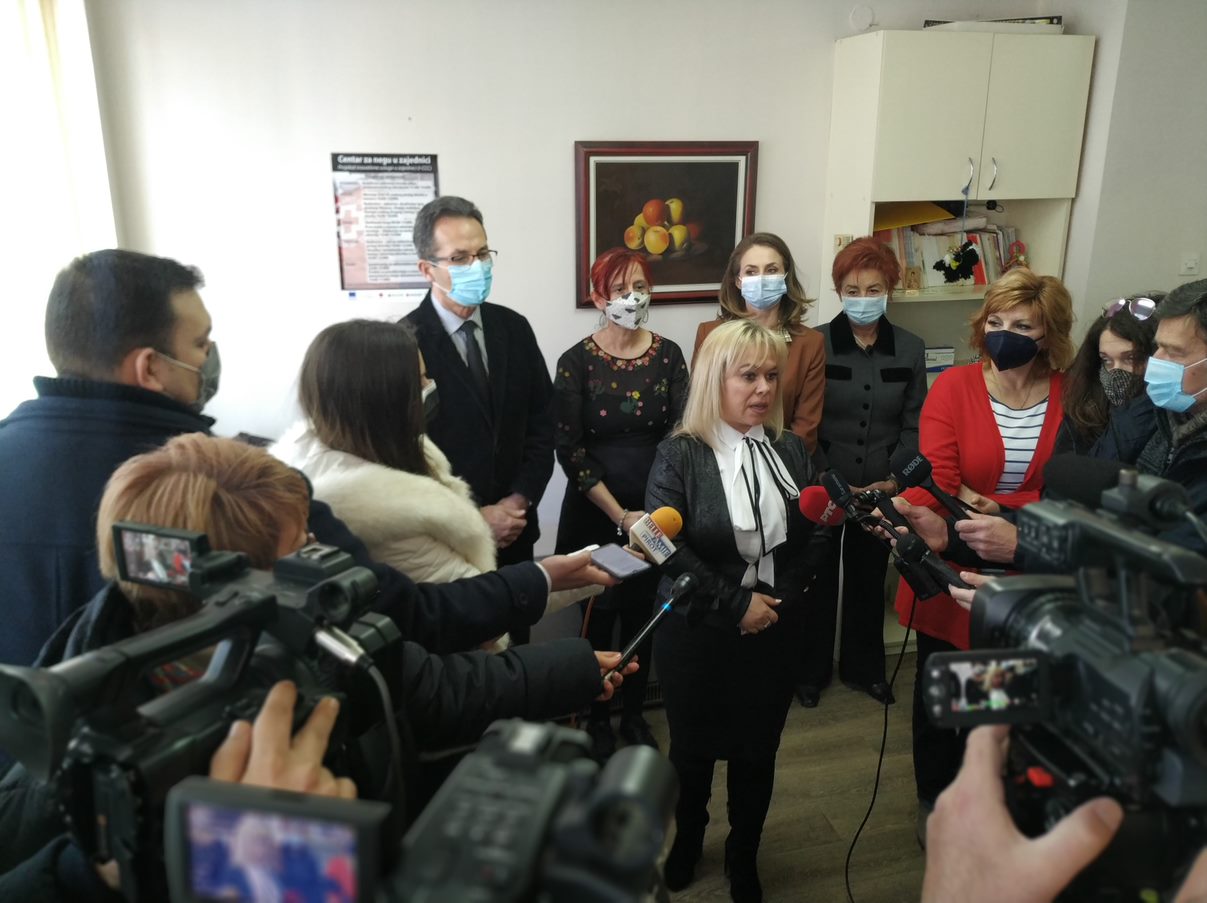
According to the World Health Organization, about 55 million people in the world suffer from dementia, and 10 million newly diagnosed are registered every year. It is believed that the number of people with dementia will double by 2030. The cost of caring for people with dementia is estimated at $ 604 billion, and yet these people remain “invisible” in public health planning. And when one person suffers from dementia, the whole family suffers,. It is estimated that about 140,000 people in Serbia suffer from dementia. Bearing in mind that this group of people is at high risk of social marginalization and abuse, the services that will be implemented within the project include home visits to people with dementia, but also providing support through simple activities and preventive measures.
